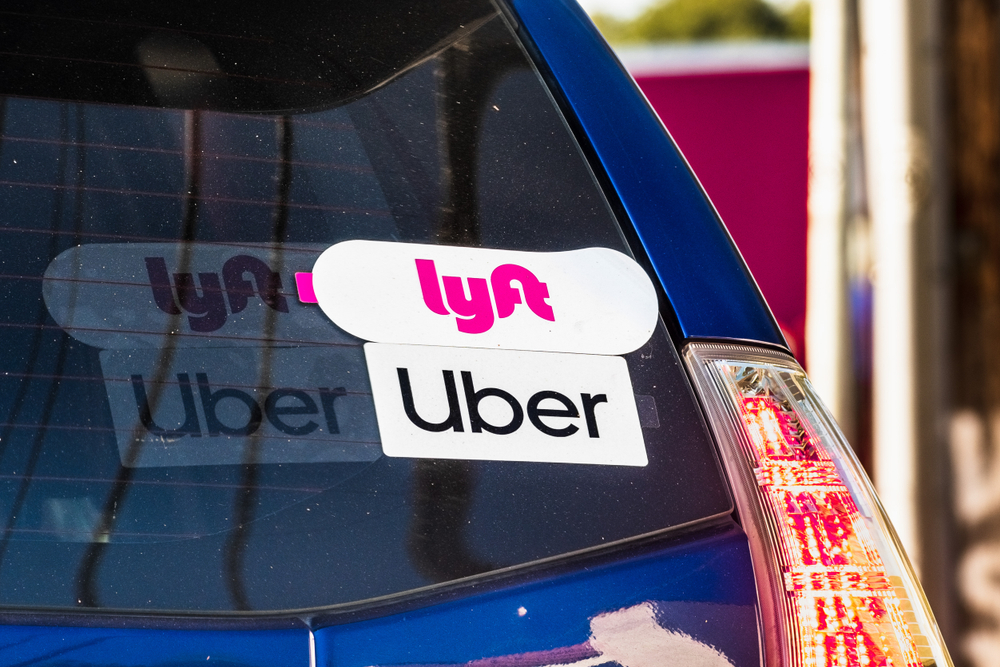
The experience of sharing a car service with another person creates an unusual situation that tests how people interact. Two people need to show mutual respect when sharing a restricted space during their travel. The wrong conversation topic can turn an otherwise peaceful ride into an uncomfortable experience, which may continue to affect you after the journey ends. People tend to bring unpleasant emotions from rideshare encounters into their daily activities, leading to unnecessary stress. Your ability to recognize which subjects to stay away from during rideshare conversations will help you maintain your mental health and the mental health of others.
1. Politics
Politics might feel like small talk, especially during election seasons when signs line every yard. But a rideshare conversation shifts the dynamic. You’re in someone else’s workspace, and they can’t escape a topic that might spiral quickly. Even a small comment—an offhand remark about a headline—can yank both of you into a debate no one asked for.
The car isn’t a public forum. It’s not neutral ground. Until you know how someone engages with political tension, the safest choice is to let the topic pass untouched. Most drivers already brace for confrontational passengers. There’s no reason to add to that weight.
2. Religion
Religion shapes identity more deeply than most topics, and a rideshare conversation doesn’t have the space to hold those complexities. One comment can feel intrusive or disrespectful without intention. The driver may belong to a faith you know nothing about, or they may have left one and carry complicated emotions about it.
Spiritual talk has a way of drifting into moral judgments fast. That kind of turn can make someone feel cornered. Respect the boundary. Let faith remain personal unless the driver initiates it and seems genuinely open to it—which is rare.
3. Personal Income
Asking a stranger how much they earn instantly crosses a line. Some passengers try anyway, usually out of curiosity about how much drivers make. But that question hits a nerve. This is someone’s livelihood. They don’t owe details about their finances to anyone, especially someone riding in the back seat.
Money talk tends to bring assumptions and comparisons. That never improves a rideshare conversation. It only exposes private information and leaves people feeling evaluated.
4. Relationship Troubles
It’s tempting to vent. The car feels like a confessional booth where you’ll never see the listener again. But unloading relationship problems onto a driver puts them in an unfair position. They don’t have the full context, and they didn’t agree to be your emotional support.
Some passengers spiral into details that cross boundaries quickly—cheating, fights, divorce. It’s heavy, and it traps the other person. A rideshare conversation works best when it stays light unless both people clearly want more depth. Assume they don’t.
5. Health Issues
Graphic stories about surgeries, symptoms, or medical scares make people uncomfortable, even when they’re trying to be polite. A rideshare conversation isn’t a place to catalogue ailments. You never know what someone else is dealing with in their own life. Your story might echo something painful for them.
And there’s a practical reason to avoid it. Health topics can lead to speculation, unintentional misinformation, or unsolicited advice. None of that serves the moment. Keep it general or skip it entirely.
6. Criticism of the Driver’s Choices
Some passengers critique everything: driving routes, music choices, and air conditioning levels. They treat the ride like an audition. That creates tension from the first minute. A rideshare conversation that starts on a critical note rarely recovers.
If something needs to change for safety or comfort, say it plainly and respectfully. Anything beyond that feels like commentary on the driver as a person, not on the ride’s conditions. And that’s where conflict usually begins.
7. The Driver’s Background
Casual questions can slide into invasive territory fast. Where are you from originally? How long have you lived here? Do you have family back home? What sounds innocent can feel pointed or suspicious. In a rideshare conversation, questions about origin, nationality, or immigration status can be highly sensitive.
It’s not your place to collect someone’s personal history. If the driver volunteers their story, that’s different. But prompting them into it can sound like you’re checking boxes.
Keeping the Ride Comfortable
Users will achieve their best results with rideshare dialogues by mastering self-control techniques. The space between words must remain unoccupied. People need to stay alert to their environment to succeed. The most comfortable dialogue occurs when participants focus on everyday subjects, such as daily activities, weather conditions, local events, and casual remarks. The subjects enable people to maintain comfort as they work to develop mutual understanding.
The objective does not include any measures to stop people from interacting with each other. The aim is to safeguard the short-term social bond, which begins when you finish opening the car door. The established limits create an improved experience for drivers and their passengers. Which subjects do you choose to stay away from when riding with a driver?
What to Read Next…
- How Your Wi-Fi Router Placement Might Be Sharing Personal Info
- 8 Things You’re Doing That Make Criminals Think You’re An Easy Target
- Senior Citizens Alert: 8 Pieces Of Information You Should Never Give Out Over The Phone
- What Are Banks Really Doing With Your Personal Spending Data?
- Why ChatGPT May Be Generating Fake Financial Advice And Getting Away With It
The post 7 Topics You Should Never Bring Up in a Rideshare Conversation appeared first on The Free Financial Advisor.







